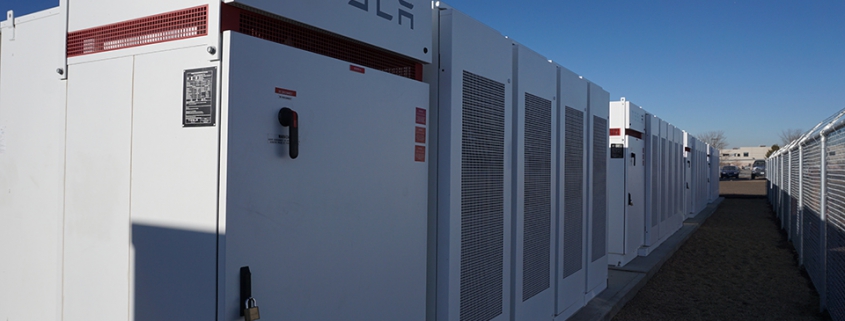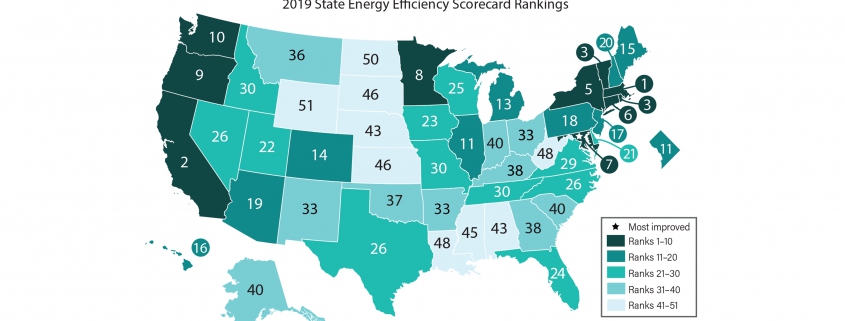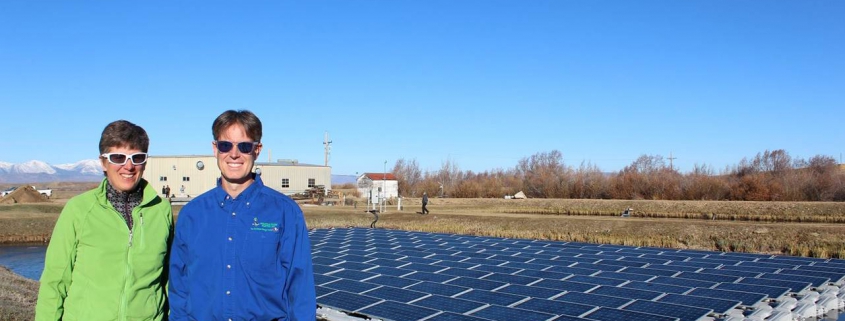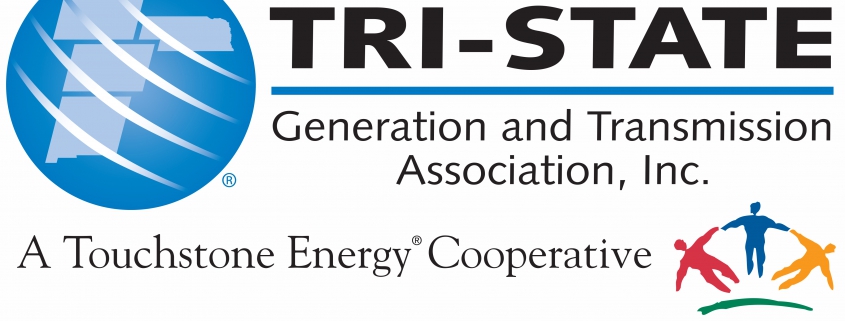Tri-State Generation and Transmission Association is pursuing an aggressive Responsible Energy Plan to transition to a cleaner energy portfolio, while ensuring reliability, increasing member flexibility and with a goal to lower wholesale rates.
“Our membership and board are unified in our pursuit of a cleaner, reliable and lower-cost resource portfolio,” said Rick Gordon, chairman of the cooperative’s board of directors. “We are making a strong and unequivocal commitment to transform Tri-State’s resource portfolio in a prudent and responsible manner.”
Tri-State’s Board of Directors has passed several resolutions to support the development of a plan that will guide the cooperative in its energy transition. Tri-State’s Responsible Energy Plan will set goals and pathways to:
• Comply with aggressive carbon reduction, renewable energy and resource planning requirements
• Ensure the reliability and affordability of Tri-State’s wholesale power system
• Strive to lower wholesale rates while maintaining Tri-State’s strong financial position
“Tri-State’s Responsible Energy Plan will define how wholesale cooperatives leverage disruptive technology opportunities to strengthen and empower members and the communities they serve,” said Duane Highley, Tri- State’s chief executive officer. “We will be clean, reliable, flexible and affordable, and do it all within our not-for- profit cooperative business model.”
The plan will recognize the significant accomplishments Tri-State and its members have achieved, identify goals and processes for carbon reduction and renewable energy development, and identify the external policy changes needed to fulfill the plan. Additional components of the plan include and exploring opportunities with solar and energy services providers to make community-scale solar, energy storage and electric vehicle infrastructure more available to our members at a lower cost.
Partnership with Gov. Ritter, Center for the New Energy Economy to support Responsible Energy Plan
A key part of Tri-State’s approach is an engagement with former Colorado Governor Bill Ritter and the Center for the New Energy Economy (CNEE) at Colorado State University to facilitate a collaborative stakeholder process for Tri-State that will contribute to and help define the Responsible Energy Plan.
Located at Colorado State University, the CNEE “educates, convenes, and inspires decision-makers to create policies that facilitate America’s equitable transition to a clean energy economy.”
“My team and I welcome the opportunity to work with Tri-State in facilitating this stakeholder process,” said former Governor Ritter. “At a time when the power sector is transitioning in a dynamic way, assisting Tri-State in developing a resource plan that reflects that transition is a true privilege.”
“As a cooperative, we understand that transformative change requires understanding and engagement with stakeholders,” said Highley. “Governor Ritter and the Center for the New Energy Economy will convene for Tri- State the best and brightest to surface ideas that will inform and advance our planning.”
Cooperative’s membership actively considering contract changes for more flexibility, local renewables
Tri-State’s membership is currently considering greater contract flexibility for members, including partial requirements contracts that would allow for more local renewable energy projects.
As a cooperative, Tri-State’s members govern the terms of the cooperative’s wholesale power contracts through the board of directors. A contract committee of the membership, including representatives from each member system, are developing recommendations to the board
“Our members are developing recommendations to make their wholesale power contracts more flexible,” said Gordon. “With partial requirements contracts, members could increase local renewables while also maintaining the value and security of being a member of Tri-State.”
New mission statement reinforces responsibility
Tri-State’s Board of Directors also voted to update the cooperative’s mission statement at their July meeting in support of the broad transition underway. Tri-State’s mission is now “to provide our member systems a reliable, affordable and responsible supply of electricity in accordance with cooperative principles.”
The statement’s change to address responsibility speaks to Tri-State’s mission as an electric cooperative to be responsible to its members and the communities they serve, as well as the cooperative’s responsibility to be resilient, compliant and a good steward of the land, air and water.
Proactive agenda will address electric industry challenges and cooperative utility needs
As part of the Responsible Energy Plan, Tri-State will advance a proactive agenda to address electric utility and cooperative needs for a successful, reliable and affordable carbon reduction and renewable energy transition.
Tri-State will address key issues including developing Western regional electricity markets, assisting impacted energy-producing communities, continuing and developing new tax incentives, addressing permitting for transmission line and power plants, and reconsidering the value of hydropower to ensure the Responsible Energy Plan’s success.
“As we transition, we cannot make these changes alone,” said Highley. “Our industry requires working with a wide group of stakeholders to address the numerous challenges that are more successfully addressed with partners.”
“We recognize that Tri-State facilities, employees and communities will be affected by the changes ahead,” said Highley. “Regulatory rulemakings and significant study must be completed to understand how to comply with new laws while preserving reliability and affordability, but we know our system and operations will change.”
Tri-State actions to date support plan goals
In the past 10 years, Tri-State and its members have taken significant steps that lay the groundwork for the Responsible Energy Plan. These include:
• In early 2019, Tri-State announced it is adding an additional 100 megawatts of solar and 104 megawatts of wind to its resource portfolio, which will increase its wind and solar energy by 45 percent. Tri-State currently has more than 475 megawatts of utility-scale wind, solar and other renewable projects in its portfolio.
• In June 2019, Tri-State issued its sixth renewable request for proposals since 2007.
• In 2018, nearly a third of the energy consumed through Tri-State’s members came from renewable energy. Less than half of Tri-State’s renewable portfolio is from federal hydropower.
• Tri-State is reducing its use of coal by increasingly accessing market power when advantageous, the retirement of San Juan Generating Station capacity in New Mexico in 2017, and the retirement of Nucla Station in early 2020 and Craig Station Unit 1 by the end of 2025.
• Tri-State’s Energy Efficiency Products Program, which has been in place for decades, had record levels of funding for members in 2018.










